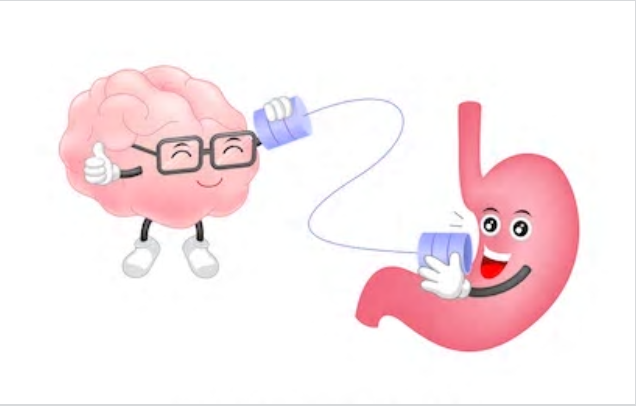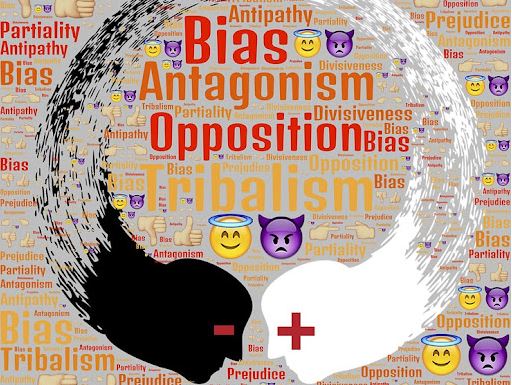A primal connection exists between our brain and our gut.
Imagine the director of a big company announcing an important decision to merge with another business and justifying this decision based on a gut feeling. This would be met with disbelief – surely important decisions must be thought over carefully, deliberately and rationally?
A primal connection exists between our brain and our gut. We often talk about a “gut feeling” when we meet someone for the first time. We’re told to “trust our gut instinct” when making a difficult decision. Is this just metaphorical as the above implies, or is there more to it? Our brain and gut are connected by an extensive network of neurons and a highway of chemicals and hormones, that constantly provide feedback to our body and more than just letting us know we are hungry. Some scientists now consider the gut as second brain. It can influence the chemistry of your mood, emotions, immune system, and long-term health.
This information freeway is called the brain-gut axis and it provides constant updates to your body from top to tail. We’ve all experienced that sinking feeling in the pit of our stomach. Looking at your post-holiday credit card debt might be a real example for you, of the brain-gut connection at work. You’re stressed, and your gut knows it—immediately. Take a moment to think about when you last had that sinking feeling, what triggered it, what did it feel like?
Here are a few gut facts to digest!
These are some of the many interesting findings scientist are now discovering regarding the gut and form the rationale for considering the gut a second brain.
1) THERE ARE MORE THAN 100 MILLION BRAIN CELLS IN YOUR GUT.
That’s more neurons than are found in the spinal cord or peripheral nervous system.
2) THERE’S AN INFORMATION FREEWAY FROM YOUR GUT TO YOUR BRAIN.
There’s one big nerve embedded in your gut – the vagus nerve. Research has revealed that up to 90 percent of its fibre carries information from the gut to the brain, and less so the other way around.
3) MOST OF YOUR SEROTONIN IS IN YOUR GUT.
Some 95 percent of your body’s serotonin, that wonderful mood molecule, can be produced by the gut. So, it’s no wonder that diet, medications, and antibiotics can wreak havoc on one’s mood, proving mood is not just a function of the brain.
4) YOUR GUT IS YOUR BEST FRIEND IN COLD AND FLU SEASON.
Not only does your gut hold brain cells, it also houses the bulk of your immune cells—70 percent. In other words, if your gut isn’t well you are more likely to have a compromised immune system.
5) YOUR GUT CAN BECOME ADDICTED TO OPIATES.
Inside your gut are opiate receptors, which are also found in the brain. The gut is just as susceptible to addiction as the brain and may contribute to the intense difficulty some addicts have trying to withdraw.
6) YOUR GUT AND YOUR MIND
Recent evidence indicates that not only is our brain “aware” of our gut microbes, but these bacteria can influence our perception of the world and alter our behaviour. So, our gut is an integral part of our mind.
What does this all mean for adult learning and behavioural change?
These findings support the notion that there is a real benefit in listening to your gut. There is now strong evidence to suggest that leaders need to use not only their heads but also the innate intelligence and guidance of the gut. The heart is the 3rd brain and while the emphasis of this article is on the gut, it is important to understand the linkages between these 3 brains. So, if the heart and gut are also brains, what is the definition of a brain?
The commonality between all 3 is they all have their own intrinsic nervous system. In other words, they have neurons (nerve cells); they all have a range of capabilities which enable them to respond to the adaptive challenges of life. They can all process information, store it, change and adapt to it.
In short, they can all learn – therefore they are all brains.
What is the untapped potential of tuning into these brains? Afterall, don’t they say 3 brains are better than 1?
Research has demonstrated there are real benefits of tuning in to all three brain sources, including better decisions, relationships, health, wellbeing and personal fulfilment.
The notion of having 3 brains underscores some important learning principles and enhances the likelihood that change will stick. If all 3 brains are “aligned” when it comes to decision making for instance, it is going to be far more potent and enduring than if these systems were in conflict with each other. A conflicted 3 brain scenario might look like this: My head has a narrative, “I should… my rules are… my logic says… but my heart really wants to do something else. Still my gut says ‘Uh, not safe.’ I’m now left not knowing what the right thing to do is. If you add time pressure on top of this dilemma, you can see a clear recipe for stress, friction and potentially a poor choice, not to mention health implications.
What are the roles of the 3 brains when it comes to decision making?
The first of the 3 brains is the obvious one, the head brain, and the master of processes such as thinking, perception, and cognition. It recognises things, makes meaning of them, creates narratives and interprets.
Head based language sounds like this: “I think”, “I reckon”, or “I understand”.
The second is the heart. Ask a person where they feel an emotion, and their hand will land directly above their heart. Nobody gestures to their knee. We know intrinsically that this is the place that processes deep emotion. What else is the domain of the heart brain? Here lie our values, along with the process of emoting, the process of valuing and the way we feel about relationships.
Heart based language centres on “I feel” or on the expression of the deep emotions and values that lie in the heart brain.
The third is the gut. Here we find our core identity. What is me, what is not me? This is the domain of the gut brain. It is also responsible for safety and protection. Our gut is extremely important in upholding our immune system, but it also takes care of self-preservation, fear, anxiety, mobility and action.
Gut based language says things like, “my gut feel” or “my instinct tells me.”
The roles of each brain in the simplest form:
· Head brain- Creativity
· Heart brain- Compassion
· Gut brain- Courage
How can we actively flex, expand and align this 3-way intelligence system – our 3 brains? What is the implication for leadership development and adult learning?
First, start by raising your self-awareness:
When you think about these brains in relation to yourself, you may notice that one brain may be more dominant. In other words, one brain gets more of a workout in your body. Take a moment to think about, which is your most dominant brain? How does this service you? What does this cost you?
Create some new neural pathways (new thinking)
(I find the activity below is helpful for my coaching clients)
Step 1:
Think about a problem/opportunity you are experiencing right now in your life or a decision you need to make.
Step 2:
As you breathe into your head ask yourself:
· What do I think about this situation?
As you breathe into your chest ask yourself:
· How do I feel about this situation?
As you breathe into your belly ask yourself:
· What are my gut instincts or inner voice telling me to do?
Step 3
· Write down, draw or talk out loud about the insights you come up with.
· How does this help me?
· How does this limit me?
· What do I want to be more of?
· How does this feel different from before?
· What might I do differently now?
Have fun working on your 3 brains and may you reap the benefits of your expanded intellect!





